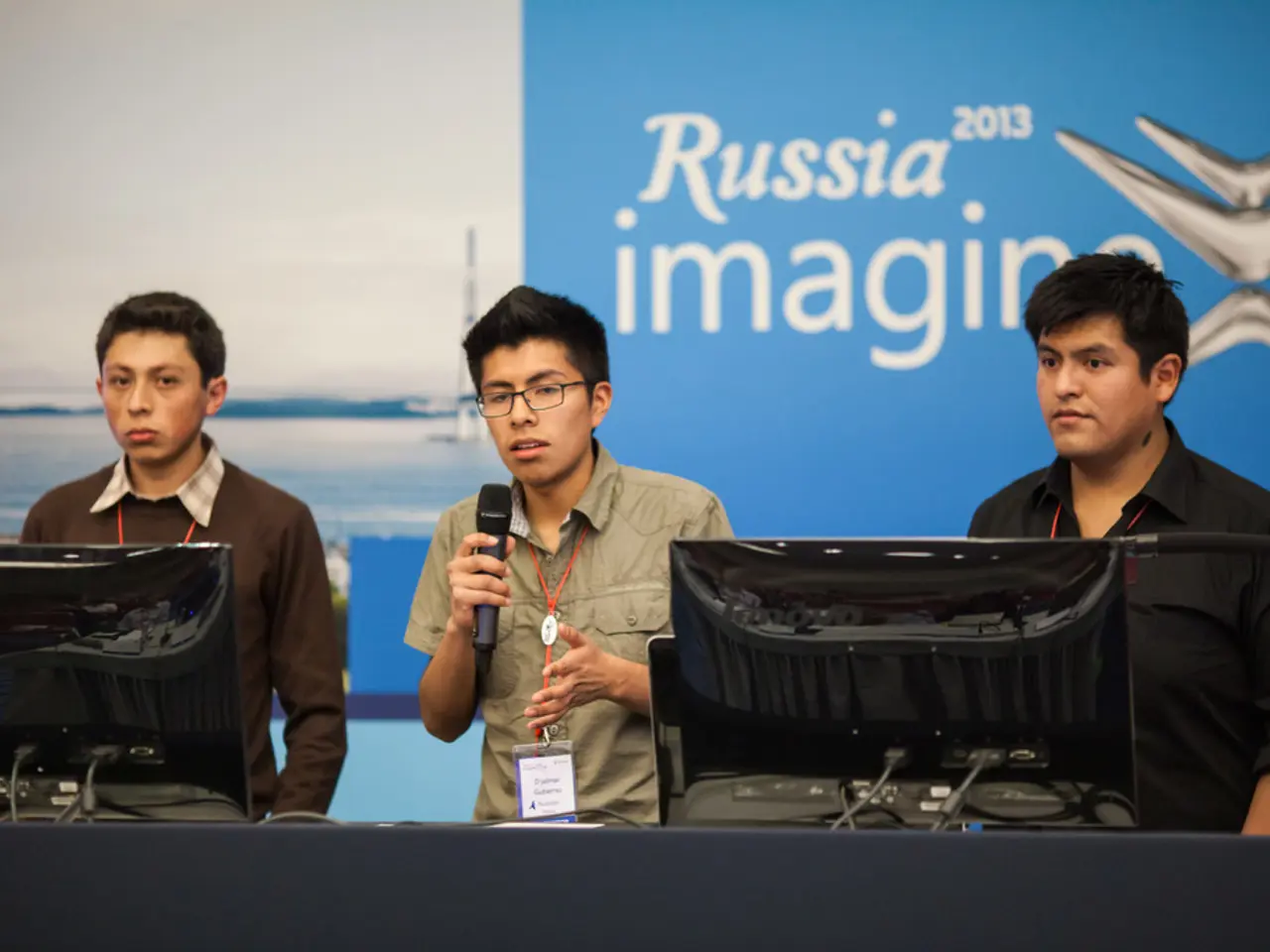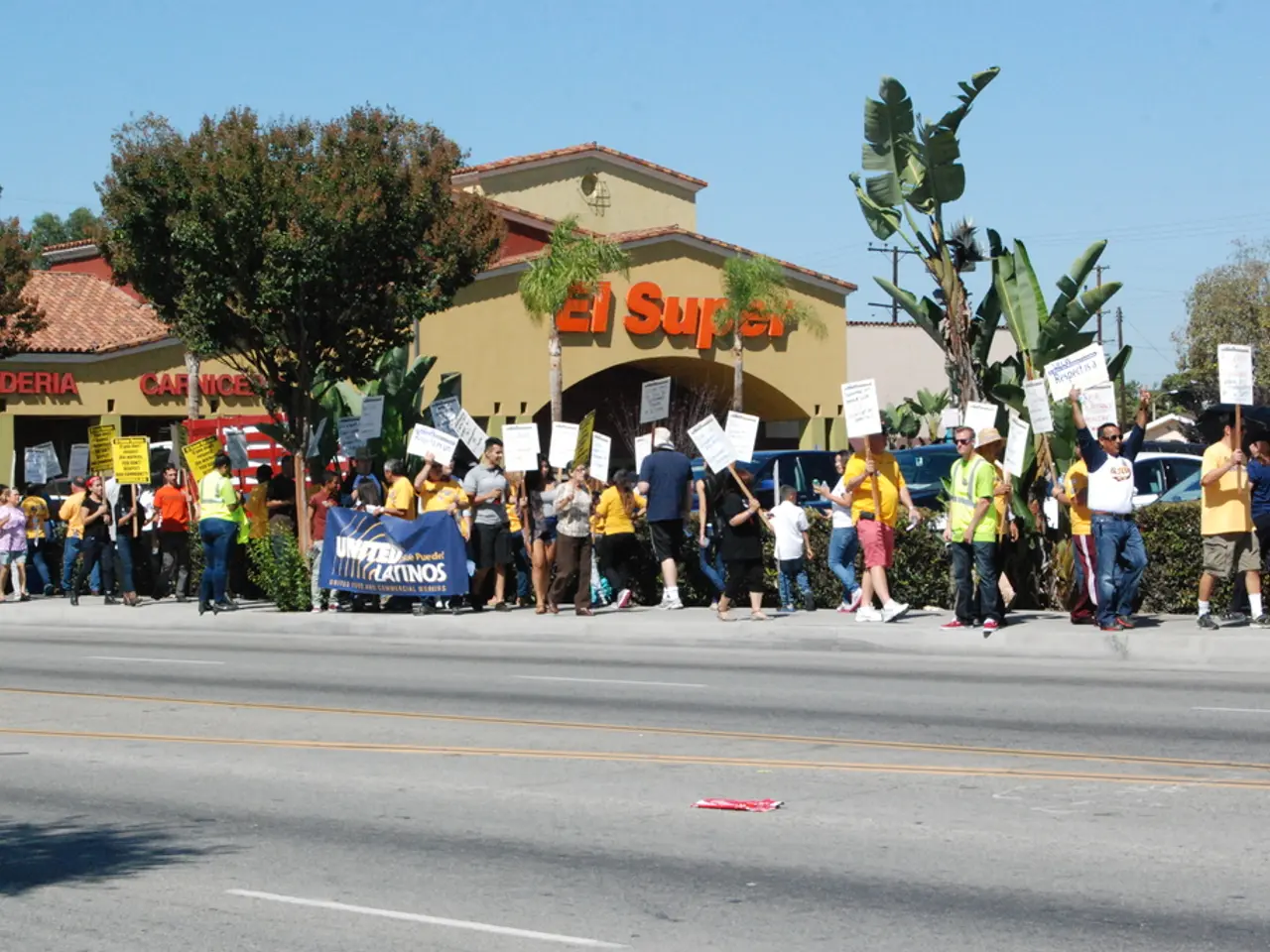America Decides to Eliminate Hayat Tahrir al-Sham from the List of Designated Terrorist Organizations
Rebuilding a Fractured Nation: Challenges Facing Syria's New Government
After over a decade of civil war, Syria is on the path to a new beginning. The delisting of Hayat Tahrir al-Sham (HTS) from the US's foreign terrorist organizations list paves the way for a potential shift in Syria's political landscape. However, the new government, led by Ahmed al-Sharaa, faces a daunting task as it strives to rebuild a fractured nation.
Diversity and Inclusivity
The UN Security Council has urged the new government to ensure an inclusive, Syrian-led political process that represents the country's diverse ethnic and religious communities. The government's appointments, however, have raised concerns about diversity. With only one female minister and many positions filled directly by al-Sharaa, there is a need for a more representative government to prevent marginalization and ensure legitimacy.
Sectarian tensions continue to simmer, with attacks on the Alawite sect in March resulting in significant casualties. The July 2025 attacks in the Druze-majority region of Suweida further highlight the ongoing challenges to minority security and political inclusion.
Humanitarian Issues
Syria's economy is in ruins, with over 90% of the population living below the poverty line. The humanitarian situation remains dire, with concerns about the security and reliability of the new governance structure in post-war Syria. The recent lifting of many US, EU, and UK sanctions offers an opportunity for economic revival, access to global financial systems, and the influx of international business. However, rebuilding infrastructure and addressing urgent humanitarian needs remain critical challenges.
Security Concerns for Minorities
The presence of foreign terrorist fighters associated with groups such as ISIL/Da’esh and Al-Qaida remains a significant security risk. Syrian authorities are urged by the international community to intensify counterterrorism efforts to ensure the safety of minority regions and facilitate stabilization efforts.
Appointments and Governance
While detailed information on diversity within government appointments is limited, global and regional observers emphasize the importance of diverse representation. The new interim constitutional declaration, signed by al-Sharaa in March, reflects a framework for governance but must translate into practice to effectively address diversity and minority concerns.
International Engagement
Western nations, including the United States, have been attempting to reset their diplomatic ties with Syria. UK Foreign Secretary David Lammy's recent visit marked the first by a UK minister since 2011. During his trip, he announced a support package of approximately £94.5 million for Syria's long-term recovery and assistance for refugees.
However, the path to normalization is fraught with challenges. A suicide bombing targeting a church in Damascus in June resulted in 25 fatalities, casting doubt on the stability of the new leadership. The White House has announced it will closely monitor the new Syrian government's actions, particularly regarding efforts to restore relations with Israel, address the presence of foreign terrorists, and prevent the activities of Palestinian militant groups.
In summary, Ahmed al-Sharaa’s government faces the multidimensional task of rebuilding a fractured nation: managing sectarian and minority security risks, addressing humanitarian and economic recovery needs following sanctions relief, and fostering an inclusive political environment that accommodates Syria’s diverse population. The road ahead is long, but with international support and a commitment to inclusivity and diversity, there is hope for a brighter future for Syria.
- Policy-and-legislation discussions at the UN Security Council emphasize the need for an inclusive, Syrian-led political process that adequately represents Syria's diverse ethnic and religious communities, as the new government, led by Ahmed al-Sharaa, tackles rebuilding a fractured nation.
- In the realm of general-news, war-and-conflicts, particularly the presence of foreign terrorist fighters associated with groups like ISIL/Da’esh and Al-Qaida, pose significant security risks for minority regions in Syria, requiring intensified counterterrorism efforts by the new government to ensure safety and facilitate stabilization.





